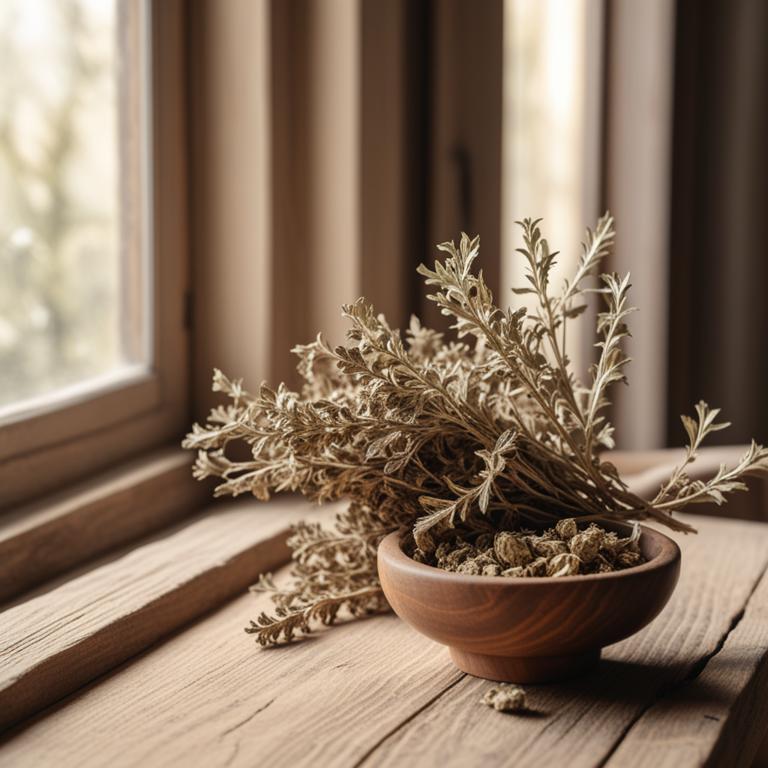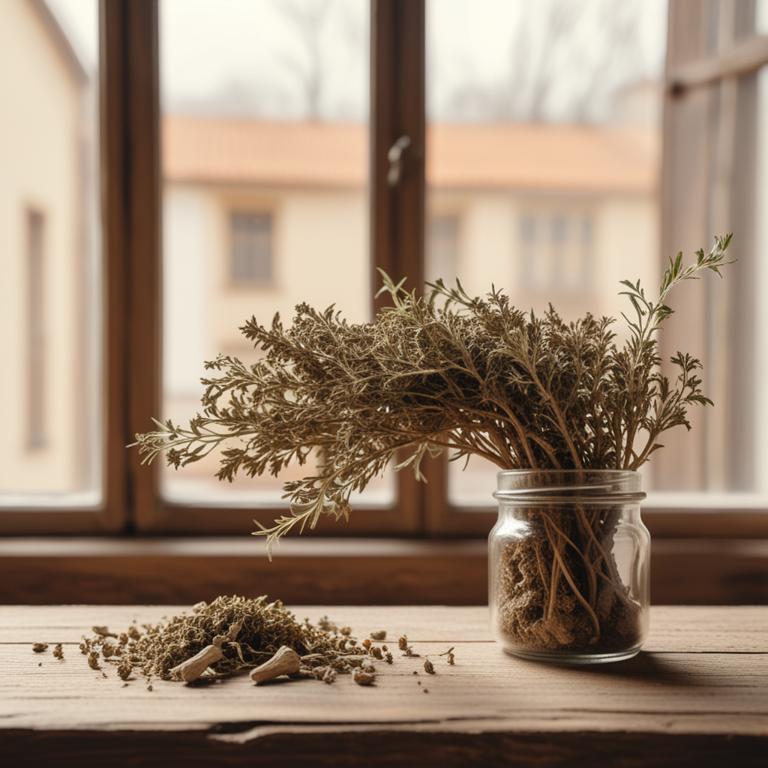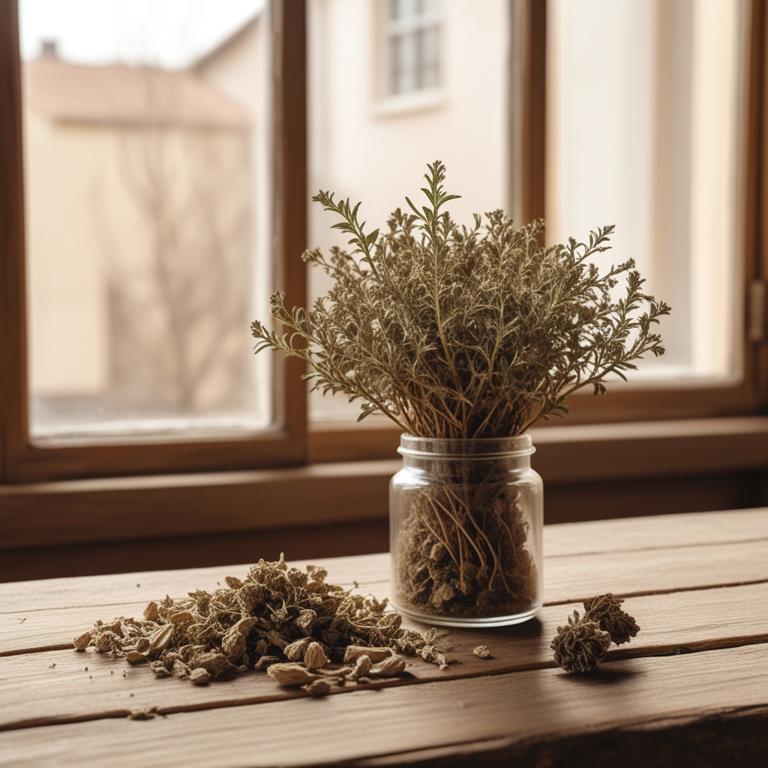Updated: Dec 1, 2024
The Osteoarthritis Guide: Causes, Medicinal Herbs, and Herbal Preparations for a Healthier You
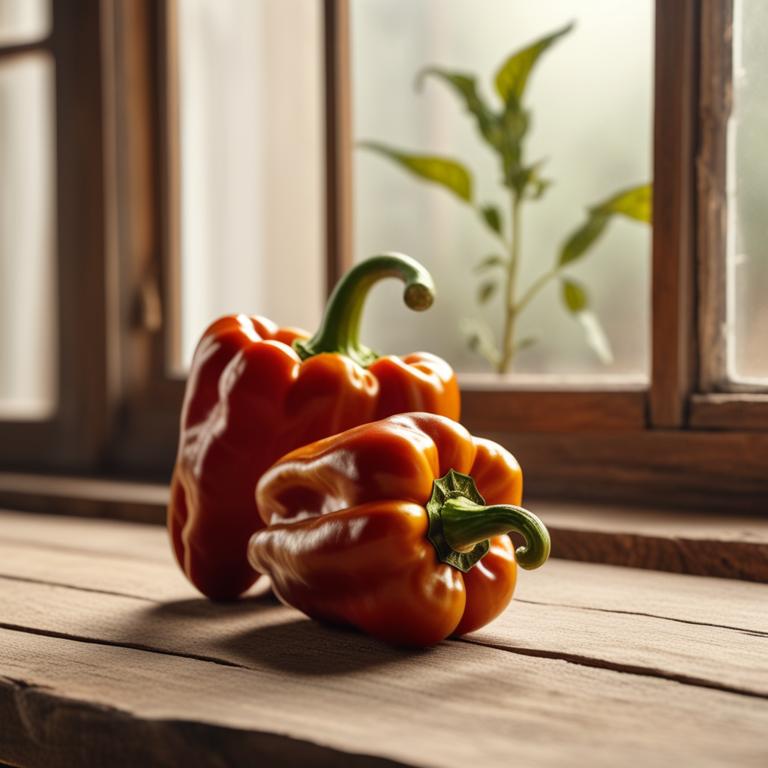
Osteoarthritis is a common condition where the joints, which are the connections between bones, wear out over time.
This can cause pain, stiffness, and swelling in the affected joints. It can make everyday activities like walking, climbing stairs, or even simple tasks like buttoning a shirt very difficult. It's a degenerative condition, meaning it gets worse over time. The exact causes of osteoarthritis are not fully understood, but it's thought to be related to wear and tear on the joints, as well as genetics and age. As we get older, the cartilage that cushions the joints can break down, leading to bone-on-bone contact and pain.
Fortunately, herbal remedies have been used for centuries to help manage osteoarthritis symptoms. Herbs like turmeric, ginger, and willow bark contain anti-inflammatory compounds that can help reduce pain and inflammation in the joints. These herbs work by blocking the production of chemicals that cause pain and inflammation. To use these herbs, you can try making teas by steeping dried herb leaves or roots in hot water. You can also take them as capsules or tinctures. Another option is to apply topical creams or ointments that contain these herbs directly to the affected joints.
Some people also find relief by taking herbal supplements, like glucosamine and chondroitin, which are believed to help maintain healthy joint cartilage.
Table of Contents
- What are the reasons behind the development of osteoarthritis?
- What benefits can be gained from using herbs for osteoarthritis?
- What are the most effective medicinal herbs for osteoarthritis?
- What are the top herbal remedies for osteoarthritis relief?
- Which herbs should you be cautious about using if you have osteoarthritis?
- FAQ
What are the reasons behind the development of osteoarthritis?
The main causes of osteoarthritis are a combination of factors that can lead to the breakdown of cartilage in the joints.
One of the main causes is obesity, which puts extra pressure on the joints, especially the knees and hips. When you're overweight, your body weight increases, causing more strain on the joints, which can lead to cartilage damage over time. Trauma, or injury, to a joint is another significant cause of osteoarthritis. When a joint is injured, the cartilage can become damaged, making it harder for the joint to move smoothly. This can happen due to a sports injury, a fall, or any other type of accident that affects the joint.
Aging is also a major contributor to osteoarthritis. As we age, the cartilage in our joints naturally wears down, making it harder for the joints to move without pain. This is a normal process, but it can be accelerated by other factors, such as obesity and trauma. Finally, a sudden or repetitive injury to a joint can also lead to osteoarthritis. This can happen to athletes who repeatedly strain their joints or to people who have jobs that involve repetitive movements, such as lifting or bending.
The constant stress on the joints can cause cartilage damage, leading to osteoarthritis.
What benefits can be gained from using herbs for osteoarthritis?
Using these natural remedies can help with osteoarthritis in several ways.
They can reduce joint pain and inflammation, making it easier to move around and perform daily activities. Some of them can also slow down the progression of the condition, which means they can help prevent further joint damage.
Additionally, these herbs can improve sleep quality, which is often disrupted by osteoarthritis pain. They can also help reduce the need for pain medications and improve overall mobility. Some of them have antioxidant properties, which can help protect the joints from damage caused by free radicals.
By incorporating these herbs into your treatment plan, you may be able to manage your osteoarthritis symptoms more effectively and improve your quality of life.
What are the most effective medicinal herbs for osteoarthritis?
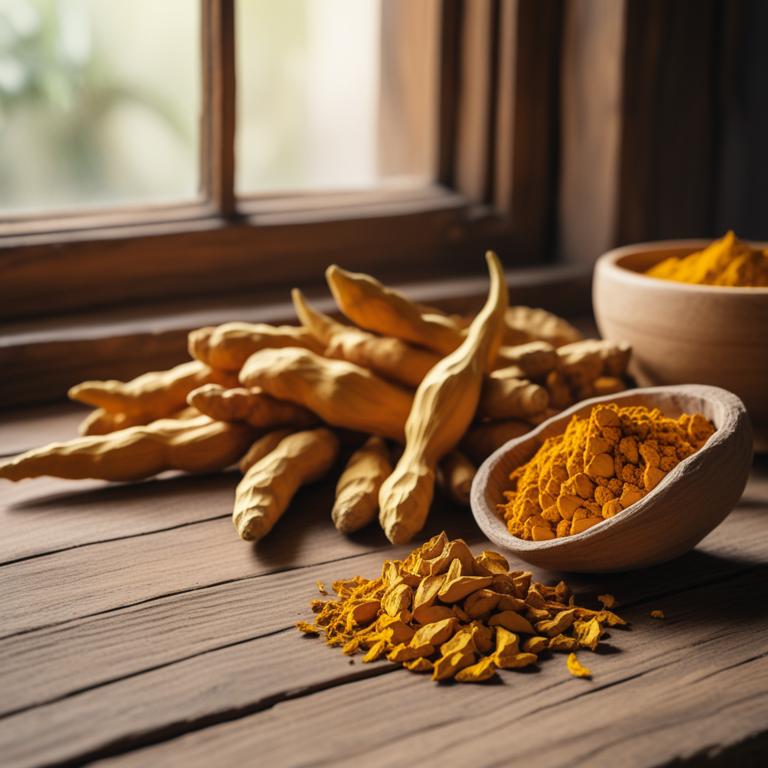
Herbs have been used for centuries to help manage osteoarthritis, a condition where the joints wear down and cause pain.
One of the key herbs is turmeric, or Curcuma longa. The active compound in turmeric, curcumin, has powerful anti-inflammatory properties that help reduce joint pain and swelling. Another herb, ginger, or Zingiber officinale, also has anti-inflammatory properties that help ease joint pain and stiffness. Devil's claw, or Harpagophytum procumbens, is another herb that's been used to help manage osteoarthritis. It contains compounds that help reduce joint pain and inflammation, and also improve joint mobility.
Willow bark, or Salix alba, contains salicin, a compound similar to aspirin that helps reduce pain and inflammation in the joints. Frankincense, or Boswellia serrata, is also used to help manage osteoarthritis. It contains compounds that help reduce inflammation and pain in the joints, and also improve joint mobility. When used together, these herbs can be a powerful combination for managing osteoarthritis. They can help reduce joint pain and inflammation, improve joint mobility, and even slow down the progression of the disease. For example, curcumin in turmeric can work together with the salicin in willow bark to provide even more pain relief.
And when used in combination with other herbs, the results can be even more impressive.
What are the top herbal remedies for osteoarthritis relief?

Herbal preparations can be a great way to manage osteoarthritis symptoms.
A topical cream, applied directly to the affected area, can provide instant relief from pain and inflammation. It works by penetrating the skin and reaching the affected joints, where it can soothe and calm the area. A decoction, made by steeping herbs in hot water, is another option. Decoctions are especially good for herbs that are hard to extract, like ginger and turmeric, which are known for their anti-inflammatory properties. Drinking decoctions can help reduce joint pain and inflammation from the inside out. Tinctures, which are concentrated liquid extracts, can also be effective. Tinctures are easy to take and can be added to food or drinks, making them a convenient option for managing osteoarthritis symptoms.
They can help reduce inflammation and promote healing in the joints. Infusions, made by steeping herbs in hot water like a tea, are a gentle and soothing way to manage osteoarthritis symptoms. They can help reduce pain and inflammation, and promote relaxation and calmness. A salve, which is a thick, spreadable paste, can also be applied topically to the affected area. Salves work by creating a barrier on the skin that reduces inflammation and promotes healing. They can be especially effective for areas with sensitive skin. In addition to these preparations, some herbs like willow bark and meadowsweet contain compounds that have anti-inflammatory properties, which can help manage osteoarthritis symptoms.
Other herbs like devil's claw and turmeric have anti-inflammatory properties that can help reduce joint pain and inflammation.
Additional Resources:
- 11 herbal teas for osteoarthritis
- 11 herbal creams for osteoarthritis
- 10 herbal tinctures for osteoarthritis
Which herbs should you be cautious about using if you have osteoarthritis?
If you have osteoarthritis, there are certain herbs you should avoid using.
Ginkgo biloba, for example, may increase the risk of bleeding, which can be a problem for people with osteoarthritis who are already at risk for bleeding complications. Aristolochia clematitis, also known as birthwort, is toxic and can cause kidney damage, which is particularly concerning for people with osteoarthritis who may already be experiencing joint damage.
Ephedra sinica, or Ma huang, can raise blood pressure and heart rate, which can be a concern for people with osteoarthritis who may be more susceptible to cardiovascular problems. Glycyrrhiza glabra, or licorice root, can cause blood pressure to rise and can also worsen osteoarthritis symptoms by increasing inflammation in the joints.
Taxus baccata, or yew, contains a toxic compound called taxine that can be fatal in large doses, and even small amounts can cause symptoms like nausea and vomiting.
FAQ
Are there any specific herbs that can prevent osteoarthritis?
Ginger has been shown to help reduce joint pain and inflammation, which can be beneficial for people with osteoarthritis.
Turmeric, which contains a compound called curcumin, also has anti-inflammatory properties that may help alleviate symptoms.
Both herbs may help slow down the progression of the condition.
Is it safe to use herbal remedies for osteoarthritis during pregnancy?
Using herbal remedies for osteoarthritis during pregnancy can be a concern.
Some herbs, like willow bark and ginger, have been used for pain relief, but others can cause problems. For example, pennyroyal and blue cohosh can stimulate the uterus and potentially harm the baby.
It's best to be cautious and avoid unknown risks.
Are there any herbs that can reduce the frequency of osteoarthritis?
Ginger has been studied for its potential to reduce inflammation and pain associated with osteoarthritis.
Turmeric, which contains a compound called curcumin, also shows promise in reducing joint pain and inflammation.
Research suggests that these herbs may help alleviate symptoms of osteoarthritis, but more studies are needed to confirm their effectiveness.
Related Articles

Jammed Finger Care: Causes, Medicinal Herbs, and Preparations
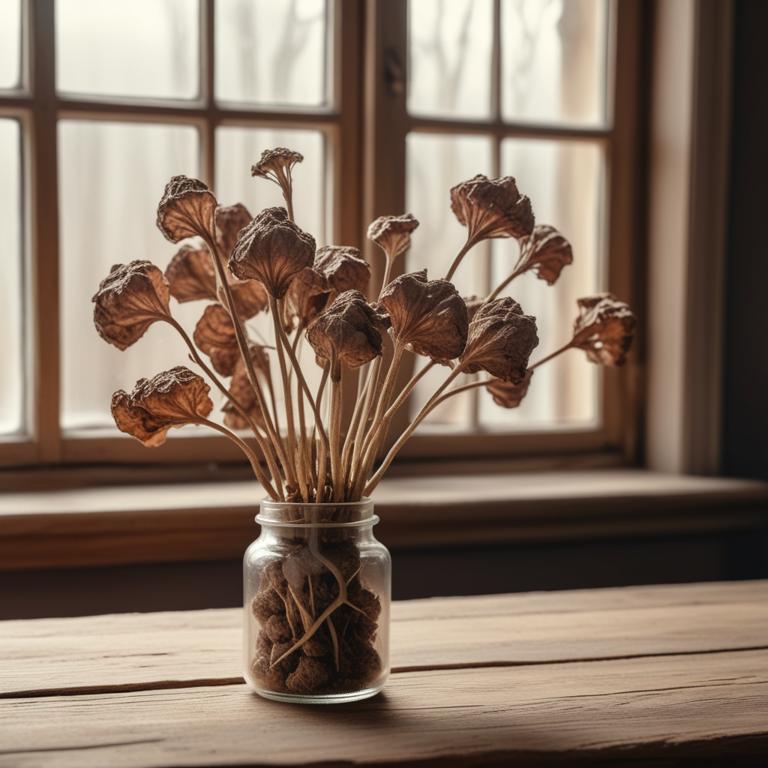
Understanding Arthritis: Causes, Medicinal Herbs, and Herbal Preparations
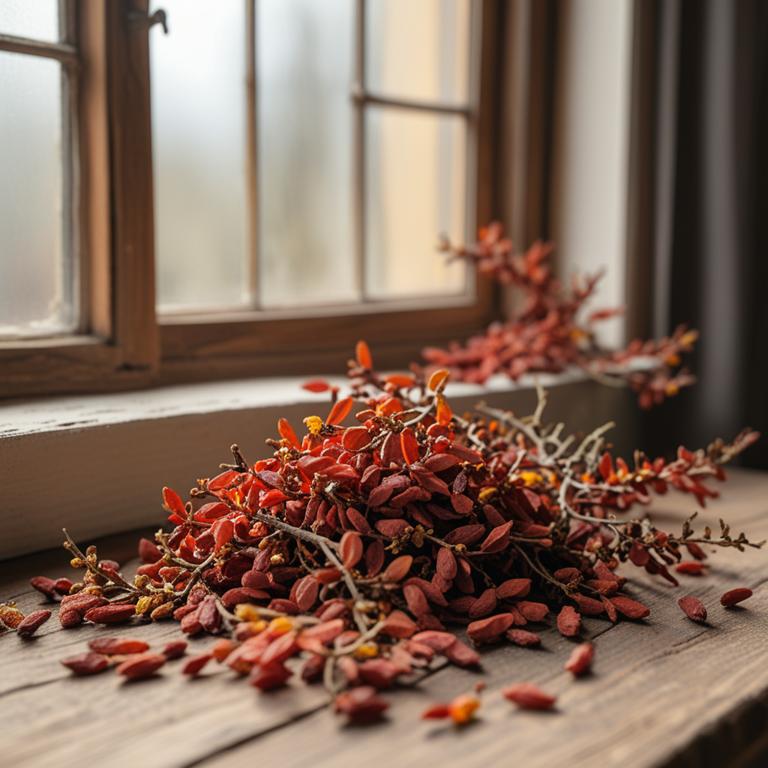
The Causes of Gout: Exploring Herbal and Medicinal Treatments
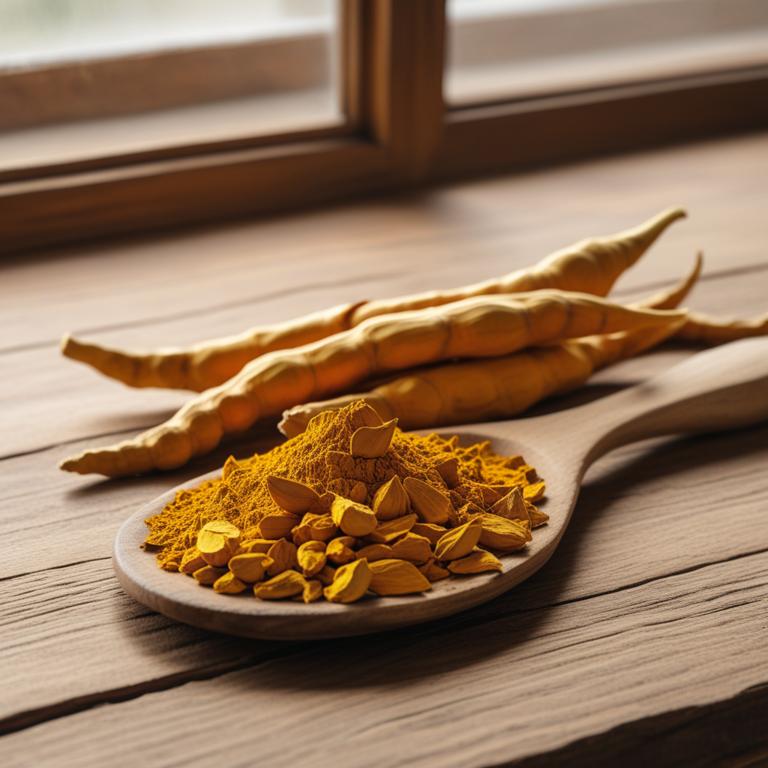
Bursitis: Causes, Natural Herbs, and Proven Preparations
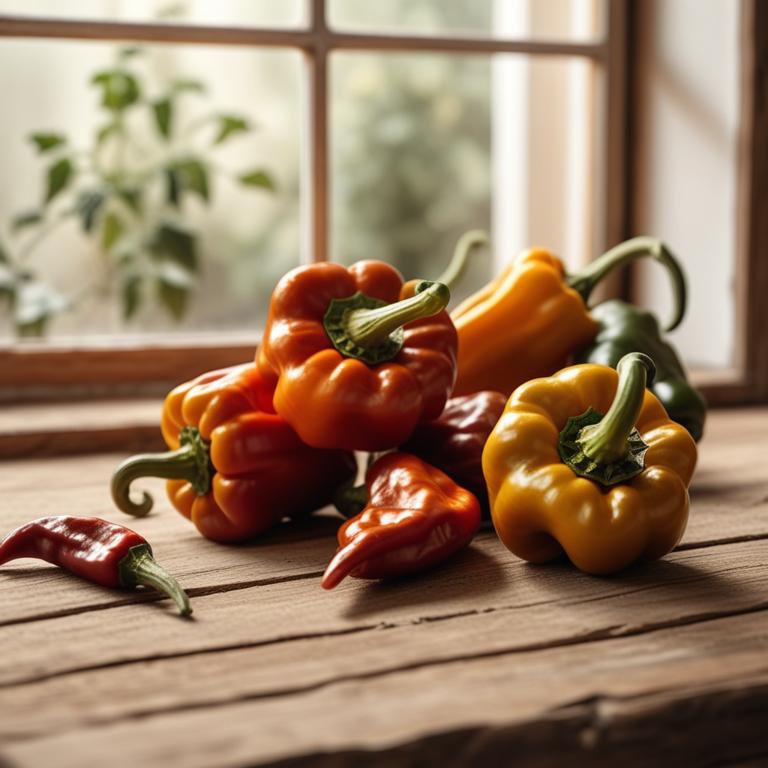
Ankylosing Spondylitis: Causes, Medicinal Herbs, and Natural Supplements for Joint Health
